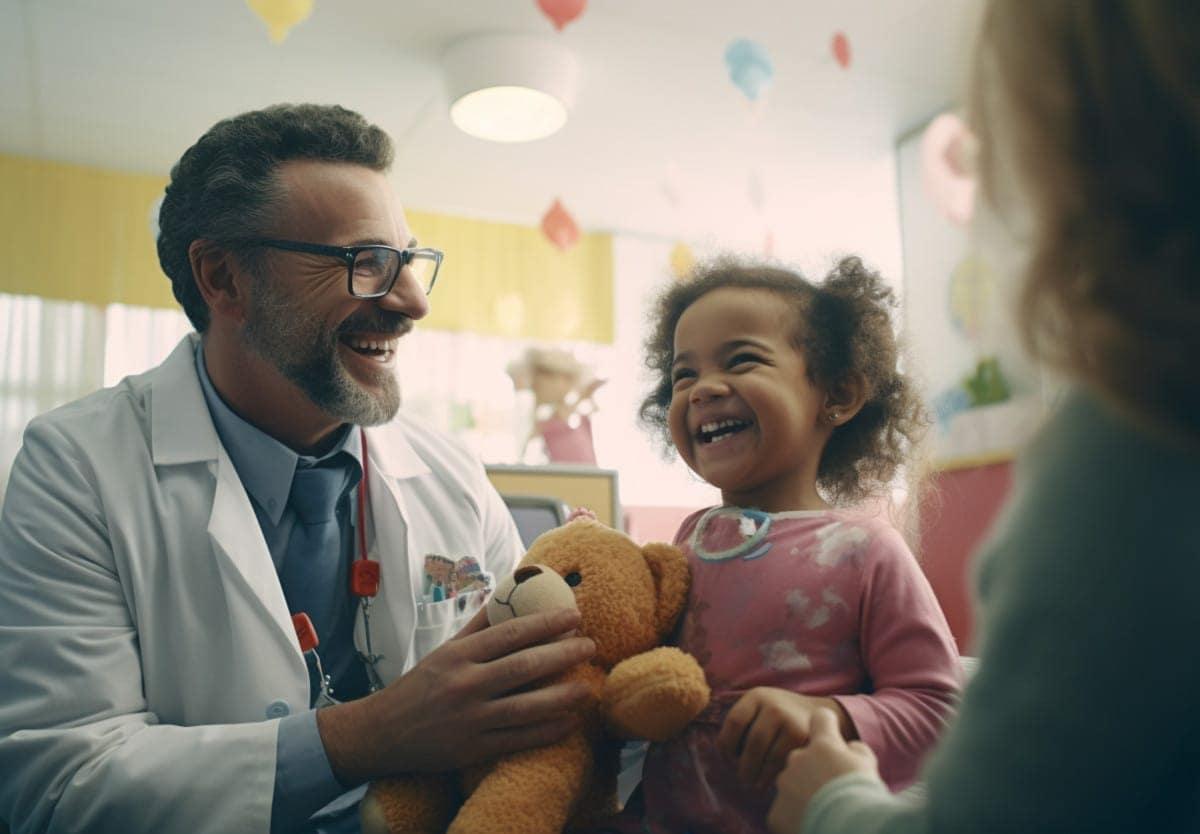
What to Expect During Your Child’s Tenth Well-Child Visit (30 Months)
At 30 months, your child is developing rapidly, and this visit is crucial for assessing their growth, development, and overall health. Below are the key points you can expect during this visit:

39 Key Points to Expect During the Tenth Well-Child Visit
- Identify Risk Factors
Assess any new risk factors related to the baby or parents, referring to Appendix 1 for specific considerations. - Discuss Child’s Diet
Ask about the child’s diet, including both quantity and quality, in addition to breastfeeding. Observe feeding if concerns about food fussiness arise, and inquire about food safety practices (Refer to Appendix 6). - Toilet Training Concerns
Discuss any concerns related to toilet training readiness. - Screen Time Inquiry
Ask about the amount and quality of screen time, referring to Appendix 8. - Sleep Hygiene Discussion
Assess your child’s sleep hygiene practices, as outlined in Appendix 9. - Childproofing Assessment
Discuss childproofing measures for the sleeping area, furniture, play area, and outdoor play, and evaluate the safety of toys (Refer to Appendix 5). - Measure Growth
Measure weight, length, and head circumference, and plot these measurements on the growth chart. - Check the Completed MCP Card
Review the completed MCP card (Green/Red zone). If not completed, assist in filling it out and interpret the results. - Vision and Hearing Concerns
Inquire whether there are any concerns about the child’s vision or hearing. - Daily Living Activities Involvement
Ask if the child is involved in feeding, dressing/undressing, bathing, grooming, and other daily living activities. - Quality of Attachment Observation
Observe the quality of attachment and the parent’s responsiveness to the child’s cues and movements (Refer to Appendix 2). - Response to Parent’s Leaving and Returning
Assess the child’s response to the parent leaving and returning (Refer to Appendix 2). - Observe Parent-Child Interaction
Observe spontaneous play between parents and child. If parents do not engage, suggest a play activity from the CCD card. Note how parents comfort the child after immunization. - Review Previous Visit’s Instructions
Review notes and specific instructions from the previous visit to track progress. - Review Office Staff Checklist
Assess the completed checklist from office staff for points to focus on during the visit. - Health Concerns Discussion
Inquire if parents have any health concerns about their child. - Behavioral Concerns Inquiry
Ask if there are any concerns regarding behavior and how they tackle them. - Managing Non-Acceptable Behavior
Discuss how parents respond to non-acceptable behavior (Refer to Appendix 10). - Parent-Child Play Interaction
Inquire about how both parents play with the child. - Parent-Child Communication
Discuss how parents talk with the child. - Eliciting Smiles
Ask how parents get their child to smile and engage. - Interpret Updated Growth Chart
Interpret the updated growth chart to assess development. - General Physical Examination
Conduct a general physical examination, looking for signs of anemia, rickets, and the eruption of teeth. - Systemic Examination
Perform a thorough systemic examination to ensure all organs are functioning properly. - Neurodevelopmental Assessment
If any issues are identified on the MCP card, conduct a neurodevelopmental assessment. - Vision Assessment
Check for squint and red reflex, especially if it has been a year since the last evaluation. - Hearing Assessment
Assess hearing by noting whether the child follows age-appropriate commands given at different distances and intensity (whispering and conversational voice). - Neglect and Abuse Screening
Look for red flags indicating neglect or signs of physical, emotional, or sexual abuse (Refer to Appendix 4). - Immunization
Administer any required immunizations to ensure the child’s vaccination schedule is up to date. - Support for Healthy Feeding
Provide support for continuing responsive feeding and breastfeeding. Encourage self-feeding with finger foods under supervision and discuss the importance of a balanced diet while avoiding junk food and sweetened beverages. - Developmental Milestones
Assess development according to the stimulation MCP card, ensuring it aligns with the child’s age band. - Anticipatory Guidance
Offer anticipatory guidance for recognizing and responding appropriately to verbal, non-verbal, and emotional cues. Help the child with self-regulation of inappropriate behavior through proper tone, body language, and facial expressions. - Encourage Play Activities
Encourage opportunities for walking and playing with age-appropriate toys (pull-along and push toys), and promote messy play with water, non-toxic colors, and scribbling with non-toxic crayons. - Verbal and Non-Verbal Communication
Teach parents to name objects requested by gestures, encourage simple two- to three-word phrases, and foster to-and-fro conversations about the child’s interests and daily activities. - Promote Independence in Daily Living
Encourage the child’s independence in activities of daily living (feeding, dressing, bathing) and involve them in household tasks (like washing vegetables or putting clothes in the laundry bin). - Preventive Health Care
Discuss personal hygiene practices, skin and teeth care, as noted in Appendix 7. - Accident Prevention
Emphasize the prevention of accidents resulting from falls, burns, choking, poison hazards, and electrical safety, referring to Appendix 5. - Danger Signs for Medical Attention
Educate parents on recognizing danger signs that require seeking medical attention. - Next Immunization Discussion
Talk about the next immunization and its importance in maintaining the child’s health.
This visit focuses on ensuring your child’s health and development while addressing any concerns you may have. By following these guidelines, you can help support your child’s growth and well-being as they continue to explore their world.










































